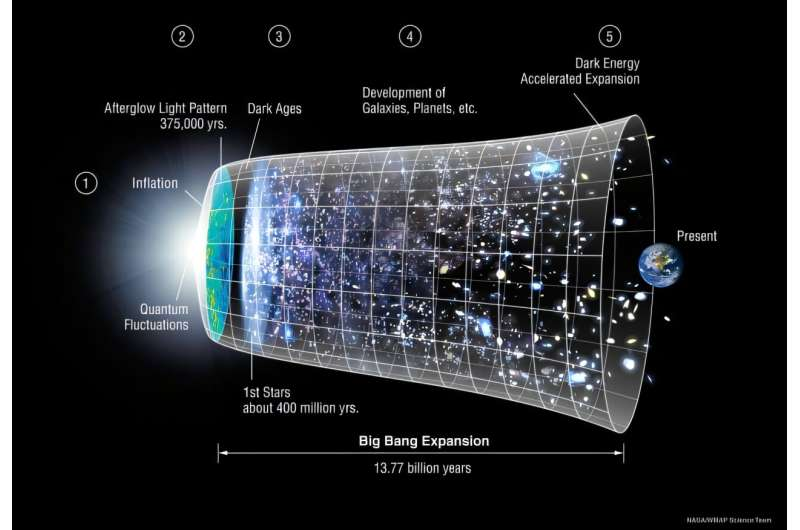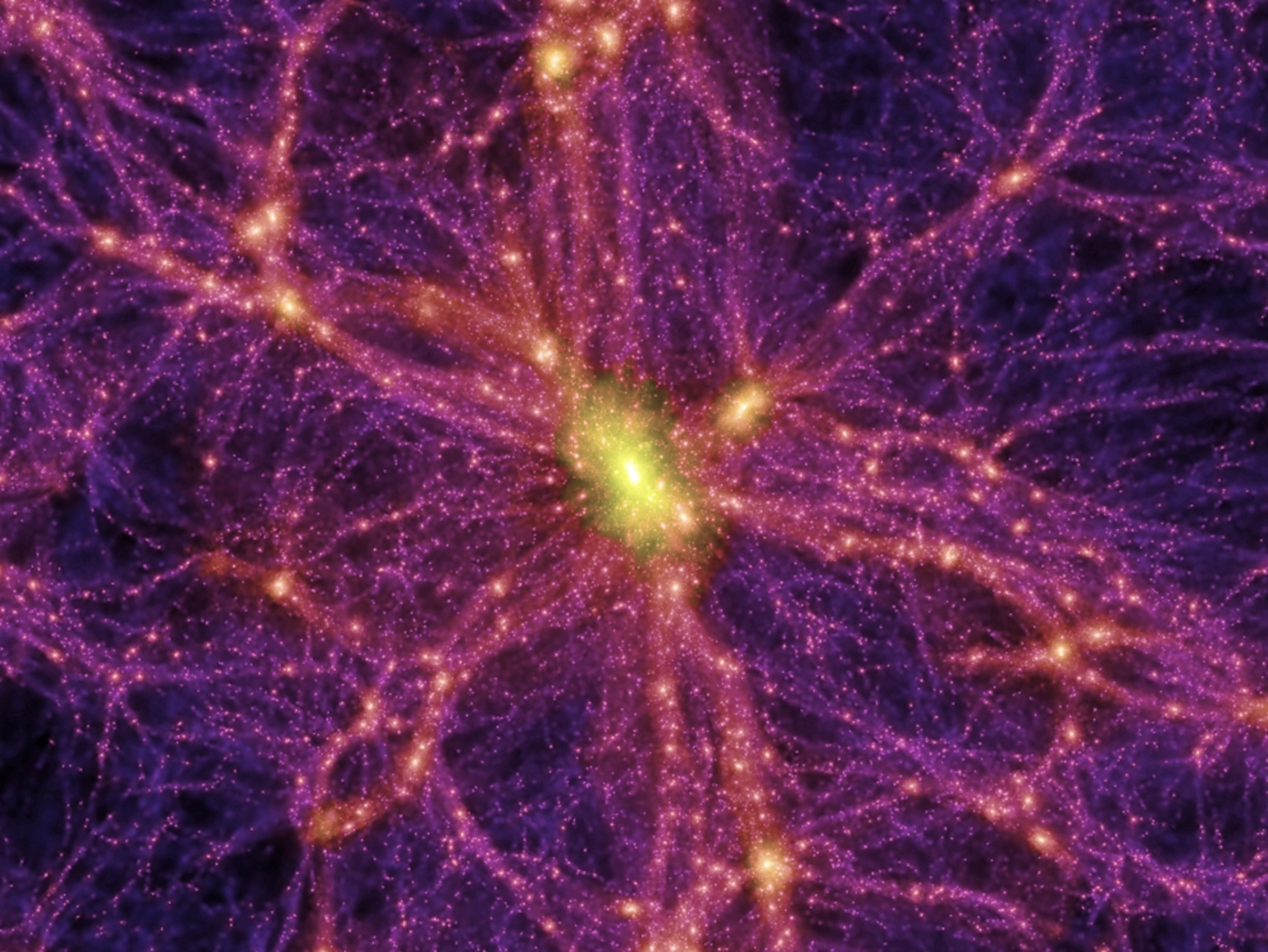Dark energy is one of the most intriguing concepts in modern cosmology, fundamentally shaping our understanding of the universe’s destiny. Recent advancements in dark energy research, particularly within the DESI collaboration, suggest that this mysterious force, often equated with the ‘cosmological constant’, may not remain static but instead could be evolving. This insight challenges previous notions about the universe expansion, prompting scientists to reconsider the mechanics at play. By delving into the clustering of galaxies, researchers can trace the effects of dark energy over billions of years, illuminating its role in galaxy evolution. As we unravel these cosmic mysteries, it becomes clear that the interplay between dark energy and matter is crucial for predicting the universe’s future.
In the realm of astrophysics, the notion of dark energy encompasses a wide range of related phenomena and terms. Often referred to as a key driver of universal acceleration, this enigmatic energy source shapes the fabric of space-time and influences the dynamics of cosmic structures. The collaborative efforts among scientists, especially in the context of large-scale mapping initiatives like the Dark Energy Spectroscopic Instrument (DESI), reveal pivotal insights into the ongoing expansion of the cosmos. Understanding dark energy’s relationship with the cosmological constant and its implications for galaxy formation and the structure of the universe remains at the forefront of contemporary research. As we explore these concepts, we open new avenues for understanding the underlying principles that govern our universe.
Understanding Dark Energy: The Heart of Cosmic Expansion
Dark energy has emerged as one of the most intriguing aspects of modern cosmology, characterizing itself as a mysterious force that permeates the universe. Widely accepted as a ‘cosmological constant,’ dark energy is believed to drive the accelerating expansion of the universe. Recent research, particularly from the Dark Energy Spectroscopic Instrument (DESI) collaboration, has sparked discussions regarding the nature and stability of this enigmatic force. Specifically, astronomers have observed potential signs that dark energy may not be constant over time, which could fundamentally alter our understanding of the universe’s fate. The implications are vast, as they challenge long-held assumptions in cosmology and necessitate a reevaluation of the current models governing the universe’s expansion, such as the standard Lambda Cold Dark Matter model.
The DESI collaboration plays a pivotal role in analyzing the distribution of dark energy throughout the universe. By utilizing the largest three-dimensional map of the cosmos, researchers can gain insights into the effects of dark energy on cosmic structures over an 11 billion-year timeline. This groundbreaking research involves intricate processes such as measuring Baryon Acoustic Oscillations, which act as a cosmic ruler, revealing subtle patterns that signal the expansion rate of the universe. Through the integration of data from millions of galaxies and quasars, scientists are piecing together a comprehensive picture of dark energy’s evolving role, raising new questions and exciting possibilities for the future of cosmological studies.
Implications of DESI Findings on Cosmological Constants
The findings from the DESI collaboration regarding dark energy have significant implications for our understanding of cosmological constants and parameters. Traditionally, the cosmological constant has been considered a fixed entity; however, indications that dark energy might be weakening challenge this notion. As researchers delve deeper into the datasets provided by DESI, they uncover evidence that may point to a dynamic relationship between dark energy and cosmic structures. This shift could lead to a better comprehension of galaxy formation and evolution, shedding light on how large-scale structures in the universe might evolve over time.
Moreover, the implications of these findings extend beyond mere academic interest; they aim to redefine our grasp of fundamental physics. If dark energy continues to decay or change in strength, it could influence theories surrounding the fate of the universe, from scenarios of perpetual expansion to eventual collapse. As physicists and cosmologists integrate these new data into stellar models, the outcome could reshape our predictions about the future of galaxies and the overarching structure of the universe. Indeed, the implications of dark energy’s behavior resonate through every aspect of astrophysical research, making the ongoing work of the DESI collaboration vital to the field.
The Role of DESI in Galactic Evolution Studies
One of the key areas of exploration for the DESI collaboration is the evolution of galaxies. Understanding how galaxies form and develop over cosmic time is intricately linked to the behavior of dark energy. With DESI’s comprehensive mapping capabilities, researchers can observe the interactions between galaxies and their environments, allowing for a clearer depiction of galaxy evolution in relation to dark energy’s influence. By analyzing the distribution of galaxies over vast distances, scientists can track their evolutionary pathways and assess how factors like dark matter and dark energy interact to shape the observable universe.
The study of galaxy evolution also involves examining the cosmic web, the large-scale structure of the universe that includes interconnected filaments of galaxies and clusters. Through the insights gained from dark energy measurements, especially concerning its impact on the universe’s expansion, researchers can better understand the formation of these structures. As the DESI survey continues to collect data, the potential insights into how dark energy shapes the cosmos deepen our understanding of not just galaxies but also the very fabric of the universe.
The DESI Collaboration: Uniting Global Research Efforts
The Dark Energy Spectroscopic Instrument (DESI) collaboration represents a monumental global effort, uniting over 900 researchers from more than 70 institutions worldwide in a quest to understand dark energy and its effects. This collaborative approach fosters a dynamic exchange of ideas and methodologies, enhancing the quality and scope of analyses conducted on dark energy, the cosmos, and galaxy evolution. The integration of diverse perspectives provides a multifaceted understanding of both theoretical and observational challenges faced by cosmologists today, encouraging innovation and discovery at every level of research.
One noteworthy aspect of the DESI collaboration is its commitment to public outreach and education in addition to its scientific objectives. By making findings accessible through platforms like arXiv and through educational initiatives led by team members, DESI enhances public engagement with the cosmos. This focus on communication bridges the gap between complex scientific discoveries and public understanding, instilling greater interest in astrophysics and dark energy research. It underscores the importance of collaboration not only in scientific inquiry but also in fostering a science-literate society that appreciates the intricacies of our universe.
Mapping the Universe: The DESI Data Release
The recent Data Release 1 from the DESI collaboration marks a significant milestone in the presentation and accessibility of astrophysical data. This dataset contains detailed information about millions of celestial objects, allowing researchers worldwide to delve deeper into studies of dark energy, galaxy evolution, and more. By providing a comprehensive cosmic map, DESI enables scientists to conduct groundbreaking research across various fields, from cosmology to stellar physics. This open-access data serves the dual purpose of advancing research and facilitating collaboration among global institutions.
The availability of such a vast trove of information opens the door for new hypotheses and experimental investigations in understanding how dark energy influences the universe’s ongoing expansion. Researchers can utilize this dataset to test existing models, refine their approaches to measuring cosmic distances, and contribute to building a holistic view of how galaxies interact with dark energy. As more scientists engage with the DESI Data Release, the collaborative efforts are expected to yield discoveries that could redefine current astrophysics, paving the way for future generations.
The Future of Dark Energy Research
Research into dark energy is poised to remain a cornerstone of contemporary cosmological studies, especially as findings from DESI continue to illuminate new aspects of this enigmatic force. The ongoing analysis and accumulation of data not only aid in understanding the current state of dark energy but also provide critical insights into its future behavior. The collaboration’s research agenda aims to unravel the complexities surrounding dark energy’s role in cosmic expansion, which is essential for predicting the universe’s fate.
As scientists gather and analyze more data, the role of dark energy in shaping the universe will come into sharper focus. Future studies could potentially incorporate new methodologies and technologies, integrating artificial intelligence and machine learning to sift through vast datasets more efficiently. Ultimately, the pursuit of understanding dark energy will not only reshape theories of cosmological dynamics but will also deepen our understanding of fundamental physics and the universe itself.
Dark Energy’s Influence on Cosmic Structures
The influence of dark energy on cosmic structures cannot be overstated, as it plays a critical role in how galaxies form and evolve over time. Understanding its effects on these structures is pivotal for developing accurate models of galaxy formation. Recent findings from DESI suggest that variations in dark energy may directly impact the rate at which the universe expands, further influencing galaxy clustering and distribution. By studying these relationships, scientists can identify patterns that reveal the intricate interplay between dark energy and matter across cosmic history.
Investigating this interplay not only contributes to the fields of cosmology and astrophysics but also provides broader context for understanding the fundamental nature of the universe. As researchers continue to map the distribution of galaxies and analyze the underlying forces at play, they are uncovering a dynamic tapestry woven by dark energy, matter, and the laws of physics. These findings will likely lead to enhanced models that account for the complexities of the cosmic web and the evolution of galaxies within it.
The Role of Baryon Acoustic Oscillations in Dark Energy Research
Baryon Acoustic Oscillations (BAOs) are a critical aspect of dark energy research, serving as an essential tool for measuring cosmic distances and understanding the effects of dark energy on the expansion of the universe. These oscillations, which originated from density fluctuations in the early universe, created a ‘standard ruler’ that physicists can use to gauge how far light has traveled from galaxies and quasars. By examining how BAOs appear across the universe, researchers can infer the influences of dark energy over time and make accurate predictions about its behavior.
The DESI collaboration’s focus on Baryon Acoustic Oscillations allows for a detailed study of how the universe has evolved over billions of years. As dark energy influences the distribution of matter, analyzing the patterns created by BAOs becomes a vital task for cosmologists. The potential for these oscillations to reveal changes in dark energy’s strength carries significant implications for our understanding of the universe. By refining measurement techniques and integrating vast datasets, researchers aim to unravel the mysteries surrounding dark energy and its impact on cosmic expansion.
Public Engagement and Dark Energy Science
Public engagement is a cornerstone of modern science, and the DESI collaboration recognizes its importance in bridging the gap between complex astrophysical concepts and public understanding. By publishing research findings and making data publicly accessible, DESI fosters a culture of exploration that allows enthusiasts and professionals alike to delve into the mysteries of dark energy. The collaboration aims to inspire the next generation of scientists and cultivate a passion for astrophysics among students and the general public.
Through outreach efforts, including presentations at international conferences and workshops, the DESI team shares the significance of their research on dark energy and its broader implications for understanding our universe. Such initiatives not only enhance public understanding but also encourage more individuals to engage with scientific inquiry. By demystifying topics like dark energy, researchers can ignite curiosity and participation, ultimately contributing to a more informed society that values scientific advancement.
Frequently Asked Questions
What is dark energy and its role in the universe’s expansion?
Dark energy is a mysterious force believed to be responsible for the accelerated expansion of the universe. It acts against the force of gravity on a cosmic scale, driving galaxies apart and shaping the universe’s evolution over time. The understanding of dark energy is key to explaining observations related to the cosmological constant and the overall fate of the universe.
How does dark energy research through the DESI collaboration enhance our understanding of the universe?
The Dark Energy Spectroscopic Instrument (DESI) collaboration is pivotal in dark energy research, providing insights into how this force affects the distribution of matter across the universe. By creating the largest 3D map of the cosmos, researchers can analyze the influence of dark energy over the past 11 billion years, contributing to our knowledge of galaxy evolution and the fundamental structure of the universe.
What findings have been revealed from recent dark energy studies using DESI data?
Recent studies using DESI data suggest that dark energy, often equated with the cosmological constant, may be weakening over time. This revelation challenges existing models of the universe’s behavior, prompting scientists to reassess the dynamics of cosmic expansion and the interplay between dark energy and matter.
How do researchers measure the effects of dark energy on the universe’s evolution?
Researchers measure the effects of dark energy by analyzing patterns in matter distribution known as Baryon Acoustic Oscillations. This standard ruler allows scientists to track the expansion of the universe across various distances, providing a framework to evaluate changes in dark energy’s influence throughout cosmic history.
What is the significance of the DESI collaboration in advancing dark energy research?
The DESI collaboration, involving over 900 researchers from more than 70 institutions, significantly advances dark energy research by generating comprehensive datasets that detail the behavior of over 14 million galaxies and quasars. Collaborative efforts enhance our understanding of cosmic phenomena and provide critical data for ongoing studies related to dark energy, galaxy evolution, and the structure of the cosmos.
How does dark energy influence galaxy evolution within the universe?
Dark energy plays a crucial role in galaxy evolution by dictating the rate at which the universe expands. Its effects shape the formation and clustering of galaxies, influencing how they evolve over billions of years. Through research, particularly with the DESI collaboration, scientists are uncovering the nuanced interactions between dark energy and galaxy formation processes.
What resources are available for further exploration of dark energy findings from DESI?
The DESI collaboration has made its Data Release 1 publicly available, allowing researchers and the general public to explore detailed information about millions of celestial objects. This dataset serves as a valuable resource for further investigations into dark energy, galaxy evolution, and other astrophysical phenomena.
What challenges does dark energy research face in understanding the universe?
Dark energy research faces significant challenges, including the elusive nature of dark energy itself and the complexities of measuring its effects on cosmic expansion accurately. As scientists continue to gather more data through initiatives like the DESI collaboration, they encounter the need to reconcile these findings with existing theoretical frameworks, prompting ongoing debates and studies in cosmology.
| Key Points | Details |
|---|---|
| Global Collaboration | The Dark Energy Spectroscopic Instrument (DESI) involves over 900 researchers from more than 70 institutions. |
| Significance of Dark Energy | Dark energy is believed to be a ‘cosmological constant’ that drives the universe’s accelerated expansion. |
| Impact on the Universe’s Future | Recent findings suggest dark energy may be weakening over time, questioning the current understanding of the universe. |
| Methodology | Utilizing the largest 3D map of the universe, DESI tracks dark energy’s influence over 11 billion years. |
| Research Goals | Alongside studying dark energy, DESI aims to investigate galaxy evolution and the cosmic web. |
| Data Availability | Data Release 1 offers public access to detailed information about millions of celestial objects. |
Summary
Dark energy is a fundamental concept in cosmology, shaping our understanding of the universe’s expansion. Recent collaborations led by the Center for Astrophysics | Harvard & Smithsonian using the Dark Energy Spectroscopic Instrument (DESI) have raised intriguing questions regarding the nature of dark energy, suggesting it may be weakening over time. This revelation challenges existing cosmological models and emphasizes the need for a rigorous reevaluation of how we perceive the dynamics of the universe. As research continues, DESI not only enhances our grasp of dark energy but also opens pathways to explore galaxy evolution and the intricate structure of the cosmos.



